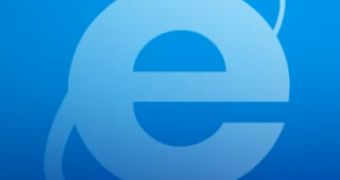All Internet Explorer customers are supported equally, revealed IE boss Dean Hachamovitch recently, taking a jab at rivals Google and Mozilla which both focus more on end users, all but ignoring business customers. Hachamovitch, who is IE Corporate Vice President, pointed out that Google and Mozilla opted to support consumers with extremely fast development and release cycles for Chrome and Firefox, sacrificing support for business users.
“At Microsoft, we believe that all Windows customers should have a great browsing experience, whether they stay at home, go to school, or work in a large organization with managed IT resources,” he said.
There’s no OR with IE, Hachamovitch underlined. The Redmond company works to cater to all its customers, from an average user to an IT professional managing thousands of computers.
“Making the Web better for large organizations (with managed IT) is just as important as making the Web better for consumers and developers,” he added.
Illustrative of the software giant’s commitment is the undoing support for Internet Explorer 6. Microsoft itself has introduced an initiative designed to get users to dump IE6 altogether, but the company remains committed to honoring its support agreement for a few more years still.
“To meet those needs, we ship updates to five versions of IE across seven operating systems with 14 Service Pack variations to customers in 96 languages worldwide every eight weeks. We do this because it’s what many customers need to fulfill their missions, safely, reliably, and in compliance with the requirements they have,” Hachamovitch stated.
As users must know by now, Google has been pushing new major versions of Chrome out the door once every six weeks, and it’s now testing Chrome 14.0 through the Dev Channel. Once a new Chrome release is out users are automatically upgraded. Only the most recent iteration of Chrome is supported.
Recently, Mozilla launched Firefox 5 which is the first product of a new and accelerated development process aimed to counter Google Chrome. Firefox 6 will follow Firefox 5 in about six week, with Firefox 7 being offered to customers six weeks after that, and so on and so forth. Mozilla will also only support the latest version of Firefox.
The way in which Google and Mozilla birth new Chrome and Firefox releases might work for end users, but it’s the nightmare of IT professionals that need to administer infrastructures running such browsers.
IT pros can’t just upgrade and hope that all will be well. Instead they need to do extensive testing / pilot programs, certifying compatibility, only then moving to the deployment process. Can you imagine doing this for 1,000 computers every six week? How about for hundreds of thousands of PCs?
“Requiring them to run the very latest browser offering – to upgrade software and keep it working at a cadence that doesn’t work for them, just because it’s easier for the software provider– is simply not possible for many of them given legacy mission-critical applications and their limited resources,” Hachamovitch said.
After talking to representatives of the IE team on several occasions I can say for sure that users should not expect Microsoft to accelerate the development and release process of IE more than it has with IE9, the upcoming IE10, and so on.
The Redmond company remains committed to less frequent IE upgrades, but more consistent, to a predicable cadence of updates, and to offering extensive support, sometime well in excess of a decade.
“The best way to move the Web forward involves fulfilling the real-world needs of the individuals and organizations on the Web. Sometimes, the needs for stable information infrastructure include Web browsers that are compatible with key systems, are fully updated with respect to security issues, and are not necessarily the very latest version,” Hachamovitch concluded.
“We respect that the people who run the critical infrastructure of the world must do so without our goals for a modern Web trumping their needs to run their systems under their control. Providing that option – the ‘and’ rather than the ‘or’ others offer – is key to progress on the Web. We want all Windows customers to have the best experience of the Web.”
Internet Explorer 10 (IE10) Platform Preview 1 (PP1) is available for download here.
Windows Internet Explorer 9 RTW for Windows 7 and Windows 7 SP1 is available for download here.

 14 DAY TRIAL //
14 DAY TRIAL //